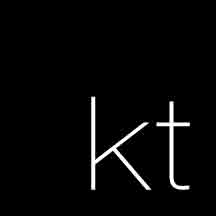Do you have a property you want to rent but are unsure about the tenant vetting process?
Do your due diligence and vet prospective renters to make sure you’re not letting someone live on your property that will cause you headaches. As a landlord, you’re the one responsible for all of the bills. Vetting tenants is how you protect yourself.
If you don’t dig in, you could be the victim of fraud. Professional renters will live in your home for a year or more, just long enough that you can’t evict them. They’ll give you all the documentation you’re looking for, pay first and last month’s rent, and then stop paying or destroy the property.
We’ve compiled a tenant vetting checklist that will help you narrow down prospective tenants and reduce your chances of problems down the road. Think of this as the information gathering stage to inform you about whether you want this person living in your house.
1. Ask for a Credit Report
A credit score check is a key component when vetting renters. Credit scores range between 300 and 900 in Canada. Above 670 is considered a good credit score, and naturally, you want to look for a prospective renter with a higher credit score and a good rating.
It’s important to learn how to read and understand credit reports. They’re full of useful information such as existing and old trades, different types of loans, and lines of credit. It will tell you whether it’s a fixed loan or an open loan and give a repayment history, the number of late payments, and whether it’s 30, 60, or 90 days late. The maximum they were approved for and how much the utilization is also stated. Utilization is important because if someone has excessive debt loads outstanding, it could be a red flag. If they run into liquidity problems, will they be able to pay their rent?
Looking at the repayment history of their phone bill is often a good indicator. Although cell phones don’t affect the credit score, they will appear in a detailed credit report. If a prospective renter can’t pay their $100 cell phone bill on time and keep the balance at zero, chances are they’re struggling to keep up with their monthly bills.
Likewise, if their credit card limit is $10,000 and their balance is $9,975, they’re probably paying their bills on time, but it’s likely they don’t have extra money to get ahead. If they’re currently paying $2000 a month for rent and the property you’re renting is $2,500, you have to wonder where they’re going to get the extra $500 from every month.
2. Verify the Credit Report is Authentic
The trouble is, as more and more landlords are asking for credit score checks, the number of fraudulent reports is also on the rise. In a competitive market, people will find creative ways to get into properties.
Look at the document and check for things that are obvious first, such as spelling and grammatical errors, formatting issues, inconsistent alignment, blurred writing, or anything that looks unprofessional. Compare the formatting on each segment of the document to ensure they match. Does one area have two zeros and the other three? You won’t see these kinds of discrepancies in any valid report.
These days is that it’s easy to fake credit reports. If you’re a landlord trying to vet a tenant and you’re not familiar with credit reports, you should run your own from the same reporting agency to ensure its legitimacy.
3. Rental Application
A tenant application form gives you a snapshot of who’s applying to live on your property. This means a list of every person, including children and their ages. It’s a good idea to reconfirm who’ll be living there during an in-person interview. It’s easier for someone to lie on paper than it is face to face and you can often get someone to admit the truth if they’re caught off guard.
You can google rental application or go to the Ontario Real Estate Association to download a link. Make sure it’s a detailed application and includes current and previous places of residence, how long they lived there, and landlord contact information.
As with the credit report, there are many ways to forge a rental application. Essentially, everything from bank statements to credit reports, from a job letter to pay stubs, can be faked. Don’t take anything at face value. You’re trying to do anything you can to mitigate risks against the person not being able to pay you.
4. Job Letter and Pay Stubs
Employment information should cover current and previous employers unless they’ve been at the same company for ten or more years. You also want to find out how much they make, their position, and who to contact to verify the information.
When it comes to pay stubs, ask for at least the two most recent ones and make sure the pay periods are consistent. Does it jibe with what they say they’re making? Look at gross and net pay. Add up the numbers to make sure they match. Are there deductions besides what’s normal? Is their income inflated due to overtime hours or a bonus? You want to see the amount they’re taking home on a regular basis.
Call the employer and get a personal reference if you can. You may even want to google the company address and find out if the owner’s name lines up with who they’ve put down as the owner. You want to verify that the company exists and that the person signing off if employed there.
5. Property Management
If you are feeling overwhelmed about making the right decision, hiring a property management company could be the perfect solution. A company like KTPM –guilty plug– can handle qualifying tenants, collecting rent, serving notices, raising rents annually, taking all incoming calls from tenants, and more. This will free you up to enjoy spending time doing the things you want, while your investment is working smoothly behind the scenes.
The Importance of Vetting Renters
While there are lots of reliable people, you’d be happy to have living on your property, there are also some less than stellar tenants who can cause trouble and cost a lot of money.
While tenant vetting may seem like a time-consuming process, remember you’re covering your assets.





